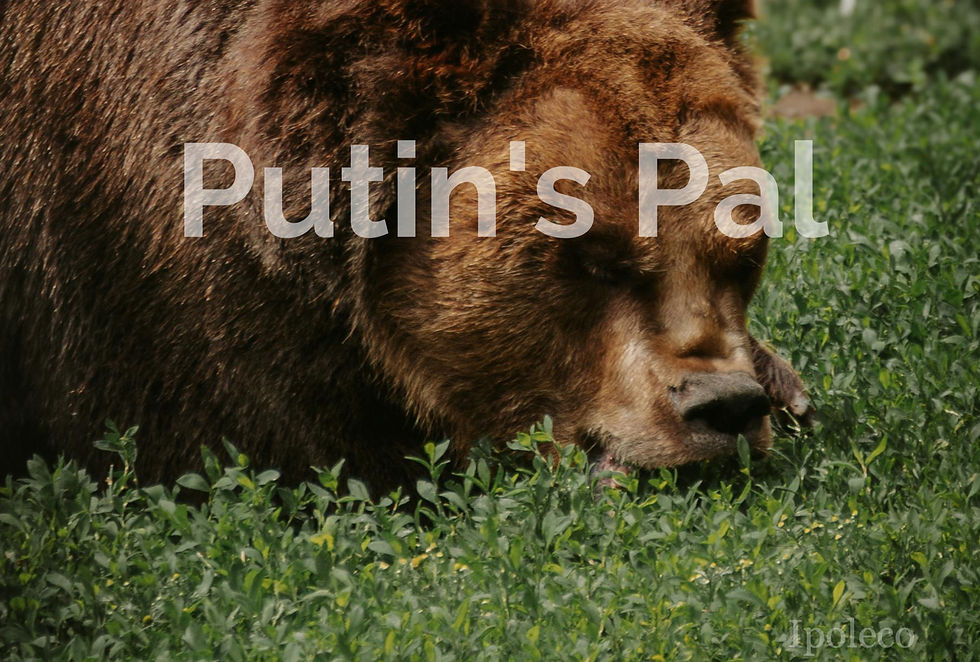Why Wasn't the EU Invited to Alaska?
- Karl Johansson

- 25 aug. 2025
- 3 min läsning
Why didn't Trump invited Europe to the talks in Alaska, and how could such a major player be sidelined?
By most measures the European Union should be a global power player. It has a huge economy, a huge population, 27 militaries, and trade deals with countries from the four corners of the earth. On paper it should be a major power with real sway, and yet in the discussions regarding a war in its back yard it is constantly sidelined. Why is that?
With some time having passed since the Alaska summit between presidents Putin and Trump where they discussed how to end the war in Ukraine, it has become clear that the most noteworthy thing to come out of the summit is the European anxiety about having fickle presidents deciding the future over their heads. On one level it is understandable, if the US were to lift sanctions on Russian and formally recognise Crimea, the Donbass, Zaporizhia, and Kherson as part of the Russian federation the diplomacy surrounding Ukraine would be far more difficult. On another level it is strange. Why does the latent Great Power in Brussels need Americas approval to support a friendly regime against an attack from a revisionist power?
As is always the case with the EU, things only make sense if you do away with the concept of ‘Europe’ as a single, distinct entity. The truth about why the EU has been a diplomatic minnow is that it does not have a coherent view on the war, let alone a coherent policy. The ugly truth is that only some parts of Europe want the war to be over, and only some parts of Europe care about the terms of a potential peace deal. In general, the farther southwest you go the more the states want a return to the status quo ante bellum whereas the farther northeast you go the more the states want a continuation of the status quo.
Since the EU cannot agree on a policy it cannot present a united front in negotiations, so it gets sidelined. I think this is an insurmountable problem for the union in the context of the Ukraine war. Over enough time there could be a movement towards a more complete union with a unified foreign policy, but that would probably take decades. Here and now – when soldiers are fighting and dying in Ukraine – the EU will not be able to exert enough diplomatic pressure to be a major player in a peace settlement.
That is bad news for Ukraine and good news for Russia. I hate to be a pessimist, and I hate to agree with Donald Trump, but I think it was probably the right call to not invite Europe to a peace summit with the Russians. We should not expect the EU to be a major player in ending the war, even as it is a major player in supporting Ukraine.
If you liked this post you can read a previous post about digital platforms here or the rest of my writings here. I also have a section for longer reads I call essays here, I particularly recommend my essay on Silicon Valley and AI called 'No Acoustic Guitars in Silicon Valley'. It'd mean a lot to me if you recommended the blog to a friend or coworker. Come back next Monday for a new post!

I've always been interested in politics, economics, and the interplay between. The blog is a place for me to explore different ideas and concepts relating to economics or politics, be that national or international. The goal for the blog is to make you think; to provide new perspectives.
Written by Karl Johansson
Cover photo by eberhard grossgasteiger from Pexels, edited by Karl Johansson



Kommentarer